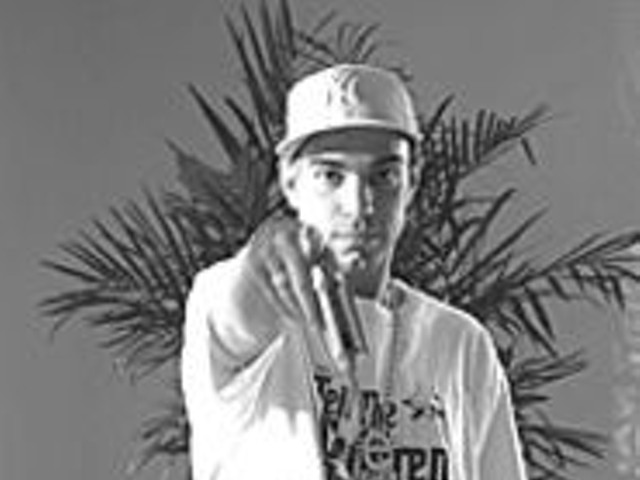"We buy the time from the station, and we produce the entire half-hour -- ads and everything," explains Sherrell. "We're in the category of paid programming. So it's more like an infomercial." And paid programming can be bumped for better-paying programming. But KMOV has promised to leave the show alone, which pleases Sherrell to no end.
"A big part of our problem has been getting the word out and getting a consistent following," says Sherrell. "It's really hard for us to deal with advertisers. We've had times when we were the number-one show in our time slot, when we were on consistently."
The show (which, by the way, has an awesome Web site -- www.midcoastmania.net -- that resembles an old-school video game) has been running off and on since 1995, germinating from a public-access show that started four years earlier.
"I started as an audio engineer," says Sherrell. "I liked going to the clubs, getting live recordings, setting up the overdubs. I set up a truck to do that, and I wanted to be in a truck so I could be isolated and get really good audio tracks. That meant I needed a camera so I could see what was going on in the room. One thing led to another, and before long we had three cameras and live switching. Then we had an abundance of local original music on file. And people wanted to see it."
Thus was born the public access "Spotlight Video." When underwriters wanted to produce full-blown ads, Sherrell switched over to buying time and rechristened the show Midcoast Mania. Even though Sherrell has been at this for a long time, he's got nothing but love for upstart TV shows like Audaphobia (which is currently taking the summer off).
"I embrace anybody who is wanting to further the music scene," says Sherrell. "I'd like to see these local shows that are promoting the local scene be on back-to-back on one channel instead of on at one time, competing for the same audience. I'm hoping to find a station, and maybe [KMOV] will be it, who looks at us differently than just another infomercial. It's more like local programming. I'm willing to stay on as a paid advertisement. I just want to be looked at as programming, not an infomercial. And I'd like to see them set aside a time that they look at all of us local programmers as offering something special to the community."
After all, Sherrell points out, there could be a lot more of local shows in the future.
"In the next few years I think there will be a whole lot more people being able to produce their own TV shows with a digital camera and a computer. I think you're going to see a lot more demand and a lot more supply for locally produced programming."
Hopefully, some day there will be a show for every genre in town, and maybe one of them can play before the witching hour. But for now, tune in to Midcoast Mania and catch some live music from the comfort of your own home. Stephin Merritt of the Magnetic Fields lived up to his reputation when he played the Pageant in late June -- that is, as a fantastic performer of some of the best songs being written today, and as a major-league whiny boy. With assigned seats and no smoking (although Merritt smoked like a chimney), the Pageant was more subdued than normal. And that's fine, for Merritt's fine songcraft deserves more than the normal level of attention paid at a show. But when he chastised the air conditioning for keeping us cool with a barely audible hum, Merritt crossed the line into total fancy-pants mode. Fortunately, the band's performance was fantastic, and everything is forgiven.
The Fields closed the first set with a fantastic version of the faux-country ballad "Papa Was a Rodeo," a song so perfect in its mimicry that someone with mainstream country credentials, like Gretchen Wilson, could turn it into a smash hit. And she wouldn't make the Pageant turn off the air conditioning to play it. Stranger things have happened. Cole Porter, to whom Merritt is constantly compared, couldn't sing well, and he's still regarded as one of the greats. Merritt can sing, but his style is very singular, while his tunes seem more universal. When the pop combine discovers his songbook, they're going to have a bucketload of hits to pawn off on whoever is hot at the moment, and Merritt will get the bucketloads of cash he deserves. And he can sit in the quiet heat all he pleases.





